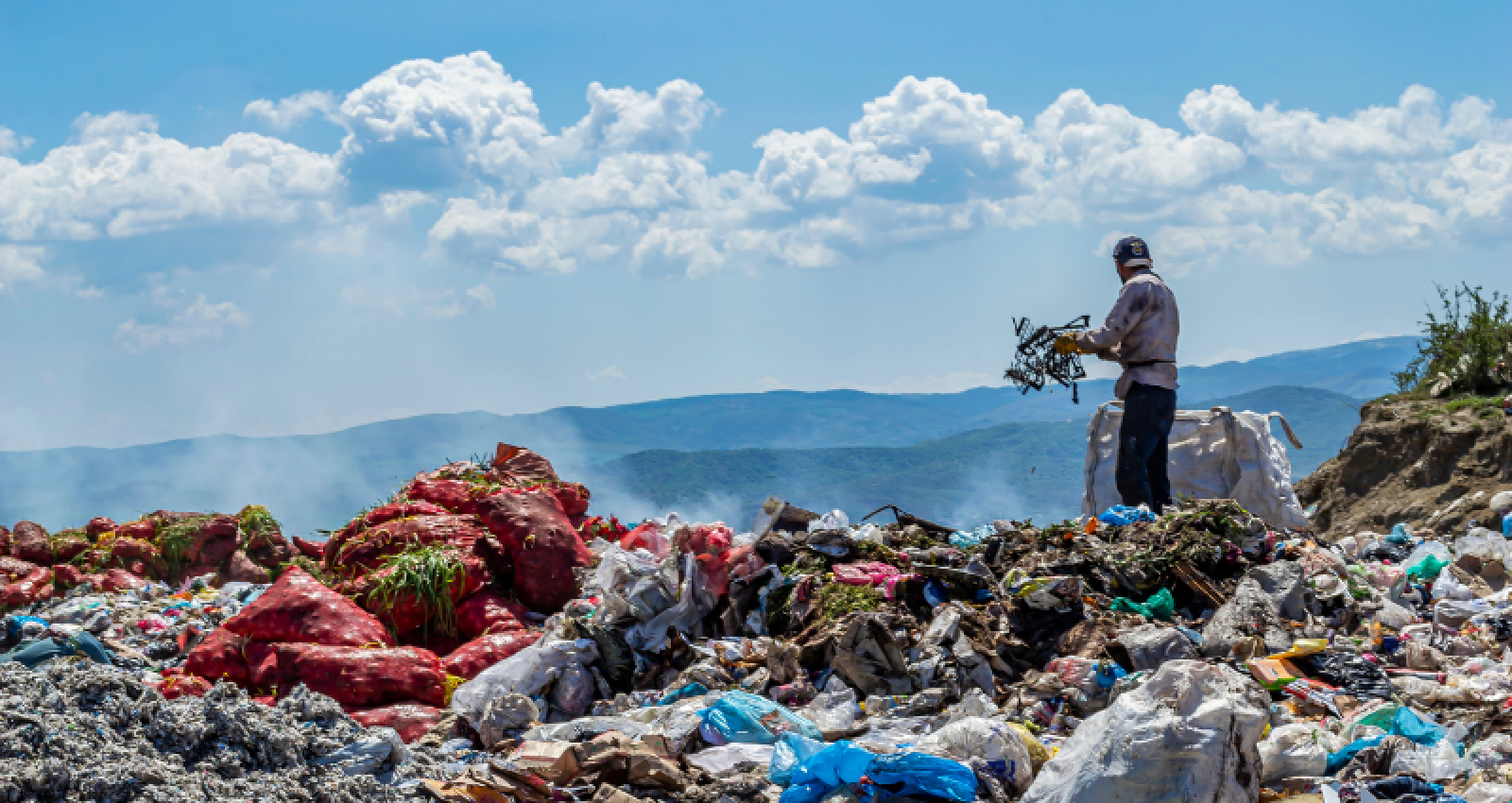Municipal solid waste poses a growing threat that surpasses local and regional boundaries. It has become a global challenge, with mounting public health, environmental, social, and economic costs. A new report from the Independent Evaluation Group (IEG) finds that the World Bank Group is a leader in addressing the challenge of municipal solid waste, but investments are low compared to other sectors, and the drive toward the long-term solution of a circular economy is not yet an overarching goal.
Improper waste management leads to soil, air, and water pollution and attracts disease vectors. Mismanaged waste can clog stormwater drains, resulting in flooding that creates unsanitary and toxic conditions, disproportionately affecting poor people, who are more likely to live near or work at waste disposal locations. Burning waste releases toxins and particulate matter in the air that can cause respiratory and neurological diseases, among other health issues.
Globally, inadequate solid waste management contributes to climate change—accounting for about 5%of global carbon emissions—and to plastic pollution, which has caused damages to the marine environment estimated at $13 billion per year. About 80% of ocean plastic comes from poorly operating Municipal Solid Waste Management (MSWM) systems.
Even more alarming is the fact that solid waste generation is growing exponentially. It is set to double in large and medium-sized cities and triple in the poorest countries by 2050. This is especially worrying since low-income countries have few sanitary landfills or recycling facilities and no incineration capabilities. Consequently, most of their waste is managed improperly, remains untreated, and is disposed of in open dumps.
IEG’s report Transitioning to a Circular Economy: An Evaluation of the World Bank Group's Support for Municipal Solid Waste Management (2010-20) assesses how well the World Bank Group has supported client countries in managing municipal solid waste, and points to sustainable solutions to the challenge while also identifying constraints to their implementation.
Addressing the challenge. A focus on financing and synergies
There is an urgent need to transition from the traditional linear economic model (take-make-dispose) and adopt widely accepted sustainable alternatives such as the waste hierarchy and circular economy approaches.
A waste hierarchy approach prioritizes waste prevention, reuse, recycling, and recovery before disposal. A circular economy closes the loop between extraction, manufacturing, and disposal by advocating for designing products to reduce waste, using products and materials for as long as possible, and recycling materials from end‐of‐life products back into the economy.
This is certainly not an easy transition as it requires greater financing to improve the capacities and systems for solid waste management and concerted action among local, regional, national, and international actors.
Financing from multilateral development institutions and the private sector for MSWM is low compared to other urban services. The International Solid Waste Association found that, between 2003 and 2012, the share of solid waste management in all official development finance was only 0.32%.
Furthermore, The Public‐Private Infrastructure Advisory Facility database shows that in 2020, MSWM received $1 billion in private investments—compared with $4 billion for water supply and sanitation. None of these funds were directed towards low-income countries, where they are needed most.
Improved synergies between local, regional, and national governments are also critical to ensure financing and service provision efforts—administered locally—are aligned with policy setting and regulatory priorities— set at the regional and national levels.
Additionally, government collaboration with the private sector, civil society, and non-governmental organizations would also lead to higher efficiency in service delivery, improved practices, and improved accountability of service providers. It would also increase support for the informal waste picker community, which is crucial in collecting and reclaiming recyclable and reusable material.
The World Bank Group’s work on Municipal Solid Waste Management
The World Bank Group (WBG) leads Multilateral Development Banks (MDBs) in financing and knowledge of solid waste management. The Bank Group has also recognized and advocated for waste hierarchy and circular economy approaches for MSWM, however, it has yet to mainstream these approaches into many country strategies and operations.
The Bank Group mainly focuses on infrastructure and service delivery and has been generally effective, although success can be undermined by challenges in achieving the financial sustainability of projects. The WBG does not, however, consistently provide for some elements essential to integrated waste management, including revising policies, planning for cost recovery, involving the private sector, incorporating behavioral factors, and considering waste pickers.
The most common infrastructure activities supported by the WBG have been closing informal dumpsites, rehabilitating sanitary landfills, or building new ones. There has been relatively less emphasis on waste reduction, separation, recycling, and recovery.
The cost of inaction is high for people and the planet. World Bank Group actions going forward
WBG institutions have the potential to face this challenge in coordinated action and to partner with other development finance institutions in helping countries achieve the necessary institutional strengthening and required funding.
The WBG has room to increase private capital mobilization for MSWM, as only 27% of its projects included efforts to incentivize private sector participation.
The Bank Group can also address the growing waste management challenge in low-income countries more frequently. These countries received less than 2% of World Bank lending and no investments from the International Finance Corporation (IFC).
The World Bank Group has agreed to implement IEG’s recommendations and is therefore reaffirming its commitment to adopting and implementing waste hierarchy practices, in line with client needs and capacities. This commitment includes identifying and working to address constraints to investments in MSWM in lower-income countries; and building on its leadership position, by collaborating and convening with developmental partners to improve the management of municipal solid waste and set a course for the circular economy.









Comments
generation of waste @source…
generation of waste @source needs to be curtailed . also it is this aspect of circular economy that can have maximum bang for the buck spent in disseminating awareness ... biodegradable plastic is an idea that needs huge research whose time is NOW ! ?
Yeah! It's true, there is…
Yeah! It's true, there is much waste in countries. Even, in Africa, this case is very important. But how to solve it? That's the question. So, there is a big problem of management of waste in the World.
Bonjour OUI,chaque qui …
Bonjour
OUI,chaque qui passe les déchets constituent un danger pour le monde nous devons bien gérer
Closing dumpsites and…
Closing dumpsites and building more modern solid waste facilities is necessary (of course), but so is training and capacity building for the local governments and others who must operate these facilities (landfills, recycling, etc). There is no time to "waste" as population growth in cities in developing nations threatens to overwhelm local/national capacity. SWANA is a leading professional association in this area, training/education is a core component of our association, and we want to help the WB and others. dbiderman, swana.org
Add new comment